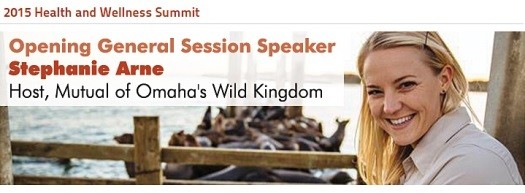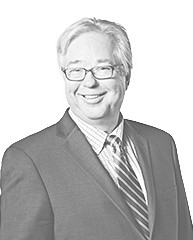
Stephanie Arne is the first-ever female host of the iconic show “Mutual of Omaha’s Wild Kingdom.” She will be the opening presenter at the 2015 Indiana Health and Wellness Summit (October 7-8) discussing the connection between human health and planetary health.
Indiana Chamber: The definition of “wellness” can be pretty broad. What is your fresh perspective on what wellness truly is, and what does that mean for the average person?
Stephanie Arne: “Wellness” means achieving “a state of healthy balance.” When you eat nourishing food, get appropriate levels of exercise, avoid stress triggers and take proper personal time for emotional well-being – each of these actions moves the body into greater states of balance.
The part I think has been missing from the “wellness” concept up to this point has been how much these things are truly connected to each other, and furthermore, how much these things are connected to that which is external to us – specifically, our environment.
We have, so far, missed the bigger picture – to see our global interconnectedness, and how this translates to personal health. For all of us, this means opening up to the tremendous opportunities afforded by taking a global perspective to ones’ health, which I look forward to discussing further at the Health and Wellness Summit in October.
IC: What do you hope attendees take away from your presentation specifically and the summit as a whole?
SA: I hope attendees will walk away feeling uplifted and empowered to effect change, whatever that may mean for them personally. One person may feel empowered to reduce the amount of processed foods they consume, which ultimately benefits their own health, but also has a global impact by reducing the demand for chemically-made, environmentally-polluting products. Another person may feel empowered to start a community garden where they can share fresh, organic produce with their neighbors, creating a space for simultaneous recreation and community connection, as well as a place to obtain healthy food. Either way, both people will be making immediate changes that will result in long-term benefits.
IC: Why should every company/organization take an active role in promoting healthy lifestyles and engaging employees in wellness strategies?
SA: Companies have a lot of power – both within AND outside of the corporation.
Within the corporation, they decide what the corporate culture will be. Outside, they decide what ideals to support through their channel partners and resource suppliers.
At this point, we have seen the statistics proving that a healthy employee is a happy employee, and that healthy/happy employees are more productive. Companies know unequivocally that to invest in the health of their employees by supporting corporate wellness initiatives is the surest way to guarantee the highest levels of productivity, and therefore profitability, of the employee investment.
In my opinion, the other major way to retain a competitive edge is by providing services in an increasingly sustainable manner. Consumers are still consuming, but they are looking for ever-increasing ways to do so with less waste and less pollution. If your company is operating from a perspective of total wellness and health, then it will be doing so with a global perspective. This is where the true change, inspiration, progress and reward come into play.
Get more information or register for the 2015 Indiana Health and Wellness Summit online.



 The improvement in Indiana’s economic environment is an outstanding success story. The series of top 10 business climate rankings from respected national sources is a tribute to the work of many throughout our state.
The improvement in Indiana’s economic environment is an outstanding success story. The series of top 10 business climate rankings from respected national sources is a tribute to the work of many throughout our state.
 When people want to be healthy, they usually consider a balanced diet and regular exercise. Too often, though, they do not think of how their personal finances are part of their health.
When people want to be healthy, they usually consider a balanced diet and regular exercise. Too often, though, they do not think of how their personal finances are part of their health. When
When  The Wellness Council of Indiana recently announced that 35 Hoosier organizations across the state have qualified for new AchieveWELL certification.
The Wellness Council of Indiana recently announced that 35 Hoosier organizations across the state have qualified for new AchieveWELL certification.
